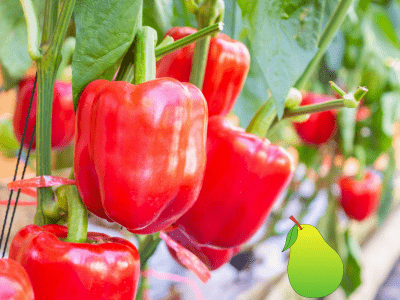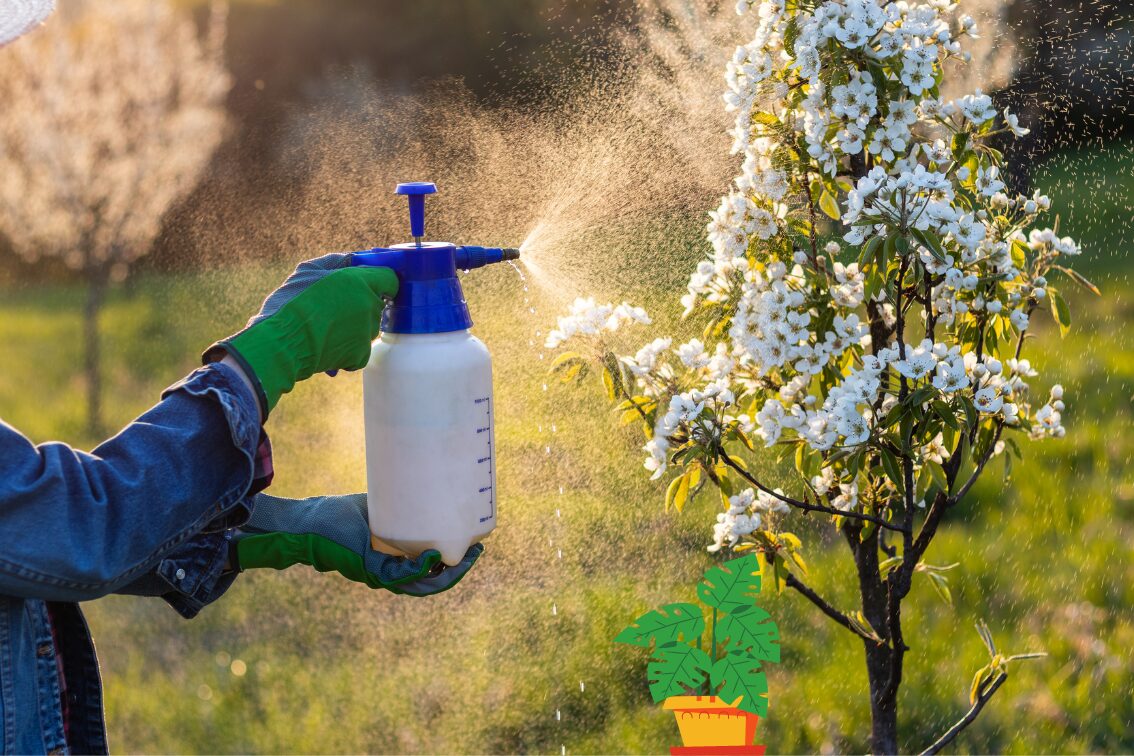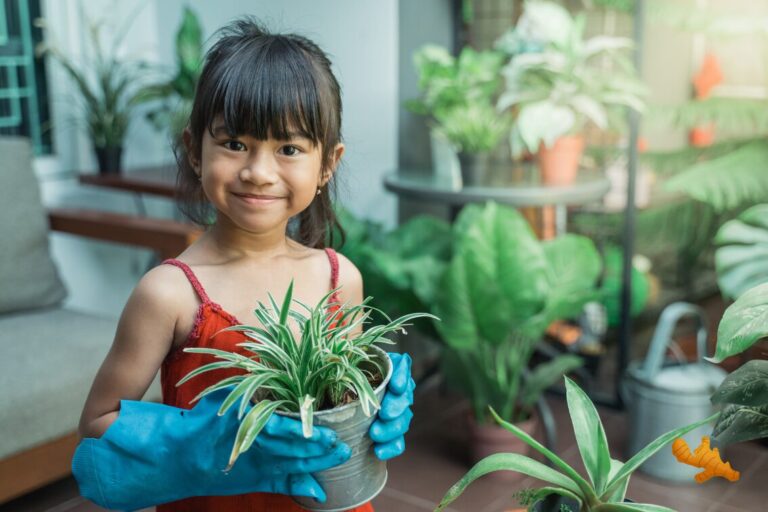Homemade Organic Gardening Sprays You Need to Try
Do you have concerns about using chemical solutions for your plants’ health? Switch to homemade organic gardening sprays! These organic home sprays are not only safe for your garden but also safe for the environment. We’ll discuss here how these homemade organic gardening sprays are beneficial for growing your plants in a healthy way. Get ready to adopt eco-friendly garden sprays and bid farewell to those pesky intruders!
Separating Gimmicks from Homemade Organic Gardening Sprays
When I first started gardening, I got so many advices from so-called experts recommending everything from baby shampoo to whiskey. It was overwhelming and, frankly, not at all trustworthy.
Over time, I’ve realized which tips are totally gimmicks and which ones truly work. Here I am sharing a few homemade pest control recipes that I’ve tested in my garden and found effective.
Homemade garden Sprays and Concoctions
Tomato Leaf Spray
Take 2 cups of chopped tomato leaves and then add 4 cups water to it. Soak the leaves overnight. Strain it. Add 2 cups more to dilute it further. Spray it over the affected plant.
Tomato leaves contain alkaloids that are poisonous to many insects. This is a highly effective
homemade pest control formula for your infected plants.
Garlic Oil Spray
To create an effective garlic oil spray, start by mincing 3-4 cloves of garlic and soaking them in 2 teaspoons of mineral oil overnight. The next day, strain out the garlic from the oil. Mix the infused garlic oil with 1 pint of water and add 1 teaspoon of biodegradable dish soap.
Before applying, further dilute the mixture by adding 2 tablespoons of the garlic oil solution to 1 pint of water. Spray this solution on the affected plants to repel pests effectively.

Garlic contains various sulfur compounds with strong biological effects. These compounds can prevent fungi from growing. It is used as an organic insecticide for plants because it can repel and kill insects.
Hot Pepper Spray
To make a hot pepper spray, mix 2 tablespoons of hot pepper sauce with a few drops of biodegradable dish soap in 1 quart of water. Let the mixture sit overnight to infuse.
The next day, transfer the solution to a spray bottle. Spray the solution to infested plants to help deter pests.
Hot pepper contains capsaicin. This compound is responsible for the heat in hot peppers. It causes irritation and prevents insects from feeding on or laying eggs on the plants.
Soap spray
To make a soap spray, mix 1 tablespoon of dishwashing soap with 1 gallon of water. Apply this directly to pests on plants. This mixture disables the insects’ outer coating and kills them instantly.
Beer trap
For a beer trap, sink a tuna can or pie plate into the ground and fill it with beer, ensuring the beer level is about 1 inch below the container’s rim. Slugs are attracted to the yeast in beer and will drown after entering the container.

Citrus rinds as slug traps
To use citrus rinds as slug traps, lay orange, grapefruit, or lemon rinds on the ground. Slugs are lured by the citrus and can be easily collected and removed.
Earwig Traps
Are earwigs causing chaos in your garden like they did in ours? There is a simple solution to tackle this problem naturally.
These insects aren’t harmful to people, but they can destroy your
home grown plants easily. I wanted to eliminate them without doing any harm to the beneficial insects. I needed something that targets earwigs specifically, and I came up with a fantastic earwig trap after some research.
Here is the solution:
Take a small plastic container. Pour some water and oil, and mix them properly. The oil will prevent the water from evaporating. Now, to attract earwigs, add a few tablespoons of soy sauce.

Punch holes around the container for the earwigs to enter, and bury it beneath the soil so the holes are just above ground level.
The earwigs love the smell of soy sauce. They enter the container through the holes, fall into the oil and water mixture, and can’t escape.
You can place several of these traps around your garden. These traps are incredibly effective for your garden.
Cinnamon or Cayenne Pepper
For ant repellent, sprinkle ground cinnamon or cayenne pepper around your plants. These spices naturally deter ants without harming them.
Red Pepper Spray
To make a red pepper spray, mix 4 tablespoons of Tabasco sauce, 1 quart of water, and 1 teaspoon of dish soap. Apply this mixture weekly to the targeted plants.

These ingredients are usually found in our kitchen. Just spray the mixture around the base of the plant. They will go away as ants do not like the smell of strong spray.
Natural Remedies for Fungal Diseases
Baking Soda Spray
To make a basic baking soda spray, add one teaspoon of baking soda to water. You can also add a few drops of liquid soap to the mixture for better result. Mix it well and spray it on both sides of the leaves.
Though you can spray the solution repeatedly on plants for treatment of fungus, frequent use can weaken the soil, which prevents plant growth.
DIY Weed Removal Techniques
Vinegar
To use vinegar to kill weeds, mix 1 gallon of white vinegar with a tablespoon of dish soap. If you want, you can also mix in 1 cup of salt. This is optional.
Stir the solution thoroughly until everything is well combined. If you spray it properly on garden weeds, it can kill them in less than 24 hours.
The Most Effective Homemade Garden Mix
Compost
You can get best results if you apply compost to your soil for healthy growth of plants. This is one of the best homemade organic fertilizers for your garden. It enhances the quality of soil by improving its structure. It can retain moisture in the soil.
To make compost, the first thing you need is green materials like kitchen scraps i.e. fruit and vegetable peels, coffee grounds, eggshells, and leftover plant-based food.
Add brown materials like cardboard and newspaper to green materials to make a good combination for compost. Apple cores, orange peels and banana peels, provide nitrogen to plants. Cardboard and dried leaves provide carbon.
Mix them with water to keep the pile moist, and turn the pile regularly to add air. It will take 2 weeks to 2 years to complete the composting process depending upon the volume of materials you have.
Safety Tips
Before using any spray, test it on a small area first. Avoid applying sprays on sunny days to prevent foliage burn. Store mixtures in cool, dark places and ensure they are clearly labeled.
FAQ
Q: How often should I apply these sprays?
A: Most sprays should be applied weekly or as needed, especially after rain.
Q: Are these sprays safe to apply to all plants?
A: While generally safe, always test a small area first and observe any adverse reactions.
Q: Can I store these mixtures for later use?
A: Yes, but ensure they are stored in cool, dark places and used within a few weeks for best results.
There are so many methods of keeping your garden produce healthy on your own without applying store-bought chemical fertilizer. These homemade organic gardening sprays are environ-friendly too. Enjoy healthier plants and a safer environment with these DIY plant protection sprays.
Feel free to share any tips or tricks you have for dealing with garden insects here.






